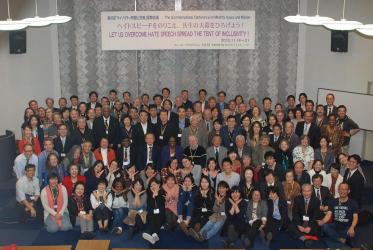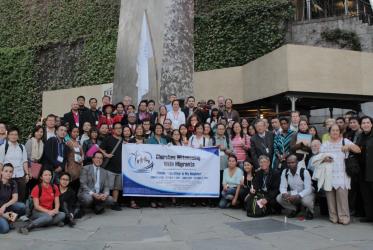Displaying 1 - 18 of 18
Japanische Kirchen diskutieren über die Probleme von Minderheiten
01 December 2015
Japanese churches discuss minority issues
01 December 2015
Landrechte bilden Schwerpunkt bei Podiumsdiskussion
17 November 2015
Land rights focus of panel discussion
17 November 2015
A humble man firmly rooted in faith
20 August 2015
New UN document opens door for churches to do more for indigenous rights
23 September 2014
Churches advocate upholding human dignity of migrants
14 October 2013







